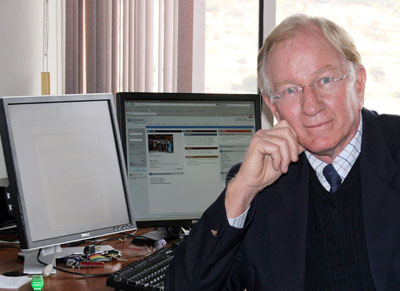 |
|
Prof. Johann Neethling
|
The University of the Free State (UFS) has recently appointed Prof. Johann Neethling as a senior professor in the Faculty of Law. Prof. Neethling is a nationally and internationally recognised expert in the field of Private Law, which is also the department he will be joining.
Throughout his career, he has lectured at various universities in South Africa. He also received numerous awards, including a B1 rating as a researcher from the National Research Foundation (NRF). He enjoys considerable international recognition for his high quality research work and he is a leading international scholar in his field.
Prof. Neethling received various scholarships for research and overseas visits, the most prestigious being the Alexander von Humboldt-Stiftung scholarships for research on unlawful competition at the Max Planck Institute in Munich, Germany. He also received a graduate fellowship from McGill University in Montreal, Canada. He has also been awarded an NRF grant of R80 000 per year to conduct research in Belgium and The Netherlands for the period 2009-2014. He will visit these countries in September this year. Prof. Neethling also received an open invitation from the Alexander von Humboldt Foundation to apply for a renewed stay in Germany at any time.
He is one of the 25 professors selected by Prof. Jonathan Jansen, Rector and Vice-Chancellor of the UFS, to enrich the various faculties at the university. Prof. Neethling will be based in Pretoria. His primary focus will be research outputs in conjunction with the Department of Private Law in the Faculty of Law at the UFS.
Media Release
Issued by: Mangaliso Radebe
Assistant Director: Media Liaison
Tel: 051 401 2828
Cell: 078 460 3320
E-mail: radebemt@ufs.ac.za
16 August 2010